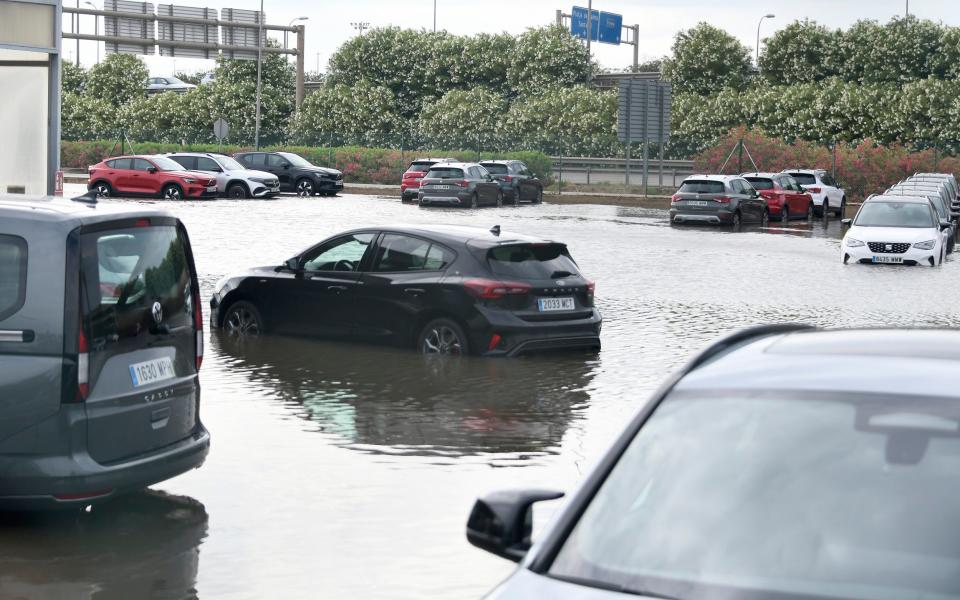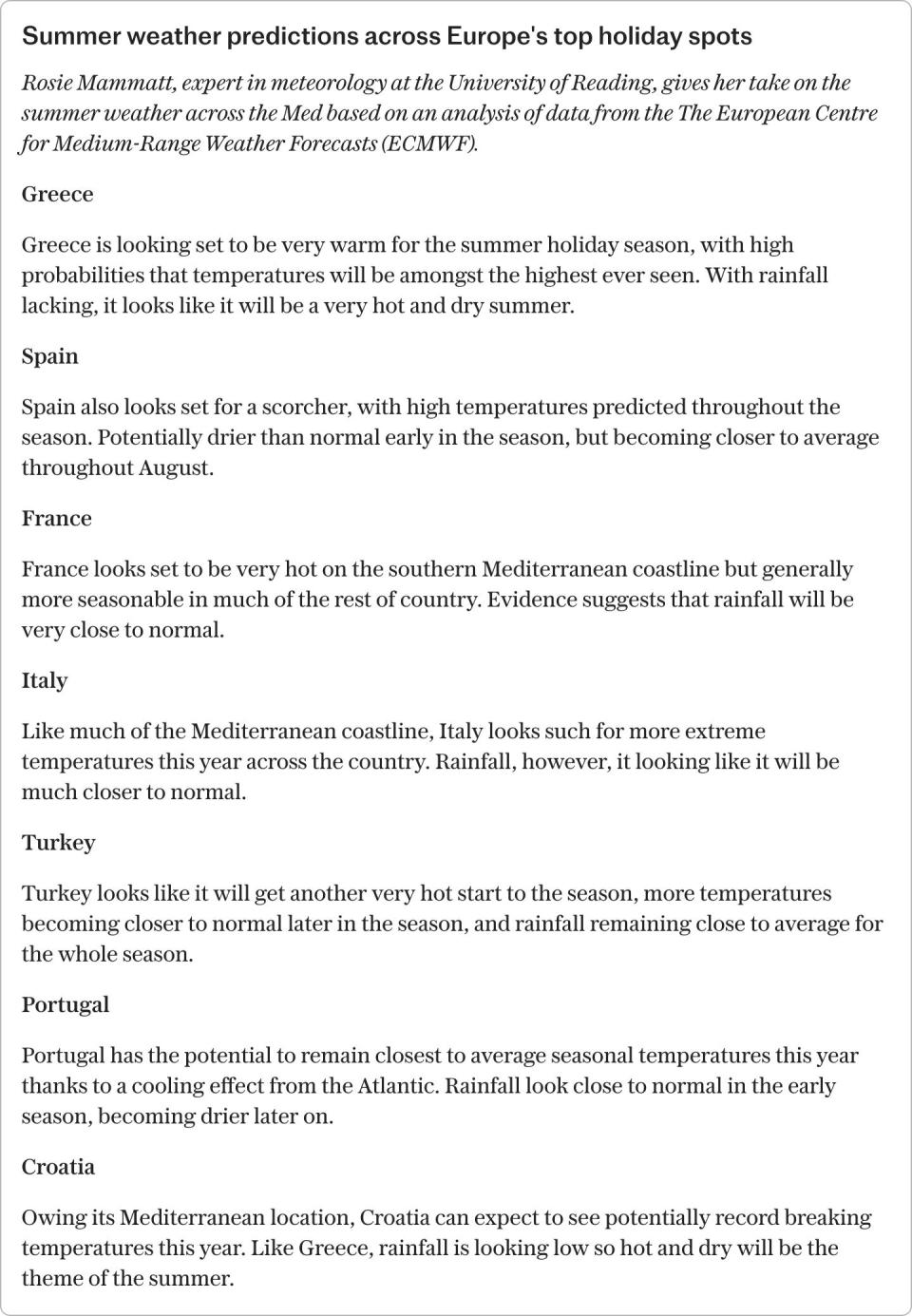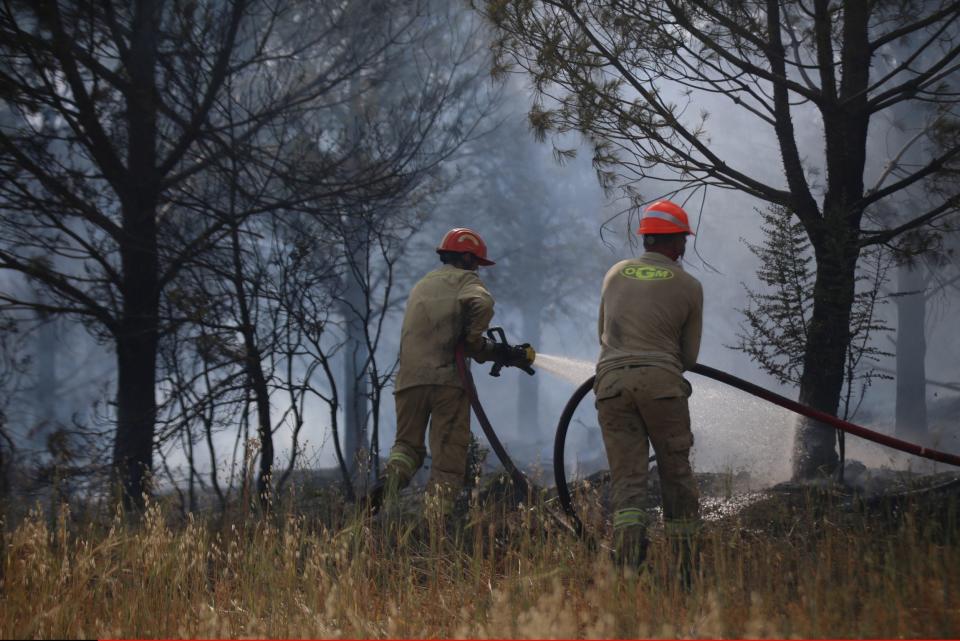Extreme weather events across the Mediterranean have occurred earlier than normal this year, with heatwaves in Greece, Cyprus and Turkey and severe flooding in Mallorca. And some weather experts say this could be the start of a sweltering summer ahead.
Greece is experiencing its earliest heatwave on record, with temperatures of 43 degrees Celsius recorded at the central and southern weather stations this week. In Greece, a heat wave is defined as a period in which the temperature rises above 38 degrees Celsius.
The unusual heat wave, caused by southerly winds that carry heat and dust from North Africa, has prompted authorities to close schools and daycare centers, as well as popular tourist attractions such as the Acropolis in Athens.

“This heat wave will go down in history,” meteorologist Panos Giannopoulos told Greek state television channel ERT. “In the 20th century, we never had a heat wave before June 19. We have had several in the 21st century, but none before June 15.”
In Turkey, temperatures are 8 to 12 degrees higher than the seasonal norm. The high temperatures have worsened forest fires across the country, one of which engulfed the Olympos Resort in Kumluca in Antalya, where wooden houses were set ablaze within hours, according to Euronews. In Cyprus, where temperatures are also high, three villages in the Paphos district were evacuated as forest fires spread quickly across the dry grassland.
The warm conditions across Europe come as Britain experiences unusually cool temperatures, with the mercury averaging two degrees lower than expected temperatures for the month.
Meanwhile, Mallorca’s airport, Spain’s third largest, was forced to close on June 11 after heavy rain flooded the runways and entered the terminal buildings. The storms and heavy rainfall were caused by a type of slow-moving storm known as a “depresión aislada en niveles altos” (DANA), which followed a period of high temperatures in Spain.


Much of this will remind holidaymakers of summers past. Last July, temperatures exceeded 40 degrees in large parts of the Mediterranean, sparking forest fires that were particularly extreme in Greece, including the popular holiday island of Rhodes.
Although it is impossible for forecasters to determine an accurate weather forecast for the summer holidays that far in advance, seasonal forecasts – based on regional trends, monthly indicators and regional meteorological agencies – can give us a good idea of what to expect.


What weather can we expect in the Mediterranean this summer?
According to the Copernicus Climate Change Service (C3S) medium-term seasonal forecasts (for July, August and September) we could see extremes at both ends of the continent, with the Mediterranean Sea experiencing warmer than average temperatures, while the north of Scotland and Scandinavia will do that. be wetter than normal.
“The latter part of the European summer is likely to be warmer than average everywhere (with an above-normal chance of exceeding the 80th percentile of climatology for seasonal averages), drier than average in the south and wetter than average in the far north,” they say.
This is in line with Weather & Radar’s forecasts, which tell us: “We can say that July 2024 looks above average for much of Europe, especially Spain, but that could only be a few days of warm weather that exceeds average distort. , followed by temperatures around or below average.”
And Rosie Mammatt, a PHD expert at the University of Reading, also agrees: ‘We are already seeing very high temperatures in the Mediterranean, and it looks like summer could bring even more record temperatures,’ predicts she.


The sea will feel warmer
C3S predicts higher than average temperatures in the coming months. “The forecasts initialized in June continue the signal seen in previous forecasts for higher than average sea surface temperatures over the next six months, across most ocean basins, with the notable exception of regions in the equatorial Pacific and Southern Oceans. The first is related to the predicted likely development of La Niña conditions later in the year.”
And these warm seas will in turn also have an impact on temperatures and rainfall, says Mammatt: “Sea surface temperatures in the Atlantic Ocean have been extremely high for some time, which has affected the weather we get. This will continue to impact temperatures and rainfall across Europe this summer,” she said.
Forest fires will make headlines again
Forest fires are not uncommon in European countries during the summer months, but the summer of 2023 saw an increased number of larger fires for an extended period. According to C3S, the cumulative burned area across Europe in 2023 was the fourth largest on record at 500,000 hectares. Forest fires are already raging in parts of southern and southeastern Europe.
Given that the quarterly seasonal forecast for Europe expects warmer, drier conditions, it is likely that summer 2024 will bring more forest fires. However, Mammatt predicts that it may not be as severe as in 2023: “It looks like it will be less dry than last year, but with low rainfall expected in some areas, the risk of bushfires is still evident.”


An extreme hurricane season lies ahead
Mammatt says some indicators suggest we could see a strong hurricane season in 2024.
“It is forecast that it will likely be a very active hurricane season, partly due to high sea surface temperatures. Last summer we were in an El Niño phase, which suppressed hurricane development. This year we are returning to a La Niña phase, which means we have more favorable conditions for hurricane formation.
“While the hurricanes themselves will affect countries on the other side of the Atlantic Ocean, former hurricanes have the ability to move back across the ocean and bring heavy rain and strong winds to Europe. However, this is very uncertain because it partly depends on the position of the jet stream, which is much more difficult to predict in advance,” Mammatt adds.
I’m worried about my holiday, can I cancel?
The State Department has not updated its travel warnings to Greece, Turkey, Cyprus or Spain due to recent extreme weather patterns.
ATOL protected tour operators must offer a refund or reschedule your holiday if there are “extraordinary” or “unavoidable” circumstances that will significantly change the nature of your holiday.
At this time, the warm weather, bushfires and heavy rain do not represent extraordinary or unavoidable circumstances, and therefore you are unlikely to receive a refund or the opportunity to reschedule your holiday. However, please note that you can transfer your holiday to someone else for a small fee.
Failing that, if you really don’t want to continue with your holiday package, you can call your agent or operator to see if you can change the dates, even though we don’t have an accurate forecast for the summer holidays. , nothing says that you will not postpone your holiday from an extremely pleasant week to a week with unfavorable conditions. So hold on tight, for now.